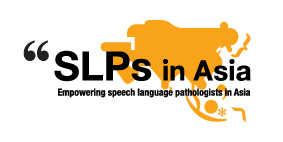Brief History of SLP development
Initially, SLP and audiology services in Malaysia were minimal. In the 1960s, volunteering organizations from the U.S. and UK began to offer SLP services sporadically (Lian & Abdullah, 2001). In the 1980s, fewer than 10 SLPs were in the country (Ahmad et al., 2013). Around the same time, a few medical assistants and medical doctors pursued audiological training at the diploma and master’s levels, respectively. The first formal educational program to train SLPs and audiologists was offered by the Universiti Kebangsaan Malaysia (UKM). The university established two degree-level curricula—Bachelor of Audiology and Bachelor in Speech Sciences in the mid-1990s (van Dort, 2005). Experts from various universities in Australia and the UK supported the development of these four-year bachelor’s programs. The first cohort included nine SLPs and nine audiology students who graduated in 1999.
Education
While internationally visiting professors and lecturers continuously reinforced academic and clinical training at UKM’s programs during their first decade to ensure sustainability, UKM employed their program graduates, who then received government funding to pursue master’s and doctoral degrees. In 2005, UKM’s degree programs were endorsed by the National Accreditation Board and became the benchmark for other local universities and colleges (Ahmad et al., 2013). Three universities (i.e., UKM, University of Science Malaysia, and International Islamic University Malaysia) offer a bachelor-level education in SLP and audiology through separate degree programs. All six programs are accredited by a government-based body, the Malaysian Qualification Agency (MQA). Their curriculums are reviewed every five years (MQA, 2016). Faculty members of the programs have established the Conjoint Board of Studies for Audiology and Speech Sciences (CBOSSAS), which aims to support the growth of SLP and audiology education in Malaysia. In establishing the educational standard in SLP and audiology, MQA considers input from the Conjoint Board. The universities where SLP and audiology programs are offered have also received and maintained recognition from the International Organization of Standardization that aims to ensure high-quality operations and procedures in various aspects, including teaching and achievement of SLP and audiology.
Although SLP and audiology training are offered separately in Malaysia, the students from both programs enroll in similar courses in their initial years. Some standard courses SLP and audiology students take include language development, developmental psychology, introduction to communication disorders, and basic linguistics. As they progress in their studies, SLP and Audiology students begin to attend courses that are more specific to their distinct fields. For example, SLP students are trained in the management of specific disorders, such as developmental language disorders, phonological disorders, motor speech disorders, neurogenic communication disorders, dysphagia, and voice disorders. In contrast, audiology students are trained in audiological techniques and instrumentation, hearing amplification technologies, and vestibular disorders rehabilitation.
Students in these programs are required to complete courses with total credits ranging from 137 to 153. The actual credits completed by the students depend on the curriculum offered by a particular university. Clinical practicum courses are embedded within these credits. In the clinical practicum, students provide services in their respective fields under a qualified SLP or audiology supervisor. Prior to graduating, students are expected to accumulate a minimum of 350 total clinical hours, with at least 200 hours obtained from direct contact with clients, caregivers, and individuals who are involved in the management of speech, language, and hearing disorders. Clinical activities, such as screening, evaluation, intervention, counseling, and training, may be considered toward direct clinical contact (MQA, 2016).
Advanced training in research at the master’s and doctoral levels is also offered by those three universities. Private universities (e.g., USCI University) and international universities with local branches (e.g., The University of Nottingham and Monash University) offer research-based advanced degrees that are relevant to SLP and audiology, such as clinical linguistics, bilingualism, and special education in individuals with communication disorders. None of the local universities have developed clinical-based training programs at the post-bachelor’s level.
Licensure system
In 2016, the Malaysian parliament passed the Allied Health Professional Act 2016. This act aims to regulate the practices of healthcare professionals, including SLPs and audiologists. The Malaysian Allied Health Professions Council (MAHPC) oversees the licensure, credentialing, and any misconduct issues among healthcare professionals. MAHPC is regulated by the Malaysian Ministry of Health. SLPs and audiologists must be granted the MAHPC license to be considered a registered practitioner in the country. To obtain the license, an individual must hold a bachelor’s degree granted by universities in countries that allow a bachelor’s level of education for practice (e.g., Malaysia, Australian, the UK). A master’s or Ph.D. is not required if an SLP or audiologist graduated from those countries; however, if a person graduates with a bachelor’s degree in SLP or audiology from a country that requires a master’s or doctoral degree for practice (e.g., U.S.), a clinical master’s degree in SLP or a doctorate in audiology is required for obtaining the license. A practicing certificate is issued to registered SLPs and audiologists by MAHPC, which must be renewed every two years. All SLPs and audiologists must present their continuous professional development efforts to MAHPC in order to maintain their license. The council is also responsible for investigating any reports of misconduct among the professionals (MAHPC, 2023).
